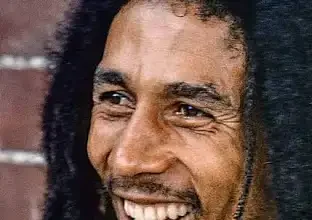Paul Kagame is the current president of Rwanda, serving since 2000. He is one of Africa’s most influential and transformative leaders, known for his leadership in rebuilding Rwanda after the devastating 1994 genocide.
Contents
Here are some key aspects of his background and leadership:
1. Background and Early Life
- Born: October 23, 1957, in Rwanda.
- Kagame grew up in exile in Uganda after his family fled the ethnic violence in Rwanda in the 1960s.
- He became involved in the Ugandan rebellion against President Idi Amin, and later served in the Uganda People’s Defense Force (UPDF).
2. Role in the Genocide and Its Aftermath
- Kagame was a key figure in the Rwandan Patriotic Front (RPF), a rebel group made up of Rwandan refugees, which eventually overthrew the genocidal regime in 1994.
- After the genocide, Kagame played a critical role in stabilizing the country and leading the RPF-backed government. His leadership during the post-genocide recovery period was instrumental in healing the nation.
3. Economic Transformation
- Under Kagame’s leadership, Rwanda has seen remarkable economic growth and development, particularly in sectors like technology, tourism, and agriculture.
- His government has implemented policies that promote national unity, infrastructure development, and poverty reduction. Rwanda’s economy has grown significantly, and the country is considered one of the fastest-growing economies in Africa.
4. Social Progress
- Kagame has promoted gender equality, and Rwanda is often hailed for having one of the highest percentages of women in parliament in the world.
- The government has prioritized education, healthcare, and social welfare systems, contributing to better living standards and life expectancy.
5. Political Leadership
- Kagame has been both praised and criticized for his approach to governance. While many admire his efforts to modernize Rwanda and reduce corruption, others have raised concerns about the restrictions on political opposition and freedom of speech.
- He was re-elected in 2017 following a referendum that approved changes to the constitution, allowing him the possibility to remain in power until 2034.
6. International Influence
- Kagame has positioned Rwanda as an influential player in international affairs, particularly in the African Union (AU) and the East African Community (EAC). His leadership has contributed to a positive image of Rwanda in the international community, attracting foreign investment.
- He’s also been an advocate for regional peace, often mediating in conflicts and encouraging cooperation between African nations.
7. Human Rights and Criticism
- Kagame’s government has faced criticism for its stance on political dissent. Some accuse his administration of suppressing opposition voices, limiting freedom of the press, and using the legal system to silence critics.
- However, Kagame’s supporters argue that his firm leadership and focus on national unity were essential for Rwanda’s recovery after the genocide, and that his policies have kept the country stable.
8. Legacy
- Kagame’s legacy is often viewed as one of resilience and transformation. From a country torn apart by genocide to one that has made impressive strides in development and governance, Kagame’s leadership is widely respected.
- However, debates about the balance between his authoritarian style and Rwanda’s progress continue to shape discussions about his presidency.
Kagame remains a complex and controversial figure, but there’s no doubt that his leadership has had a profound impact on Rwanda’s path toward recovery and growth.
To advertise contact: -info@wisemoneythoughts.com -+254724612935 MAGAZINE-1,300,000 KENYA SHILLINGS PER MONTH FULL PAGE, ONLINE-1,700,000 KENYA SHILLINGS PER ADVERT PER MONTH, VAT EXCLUSIVE, COMMISSION IS 25%.....ALL NEGOTIABLE

